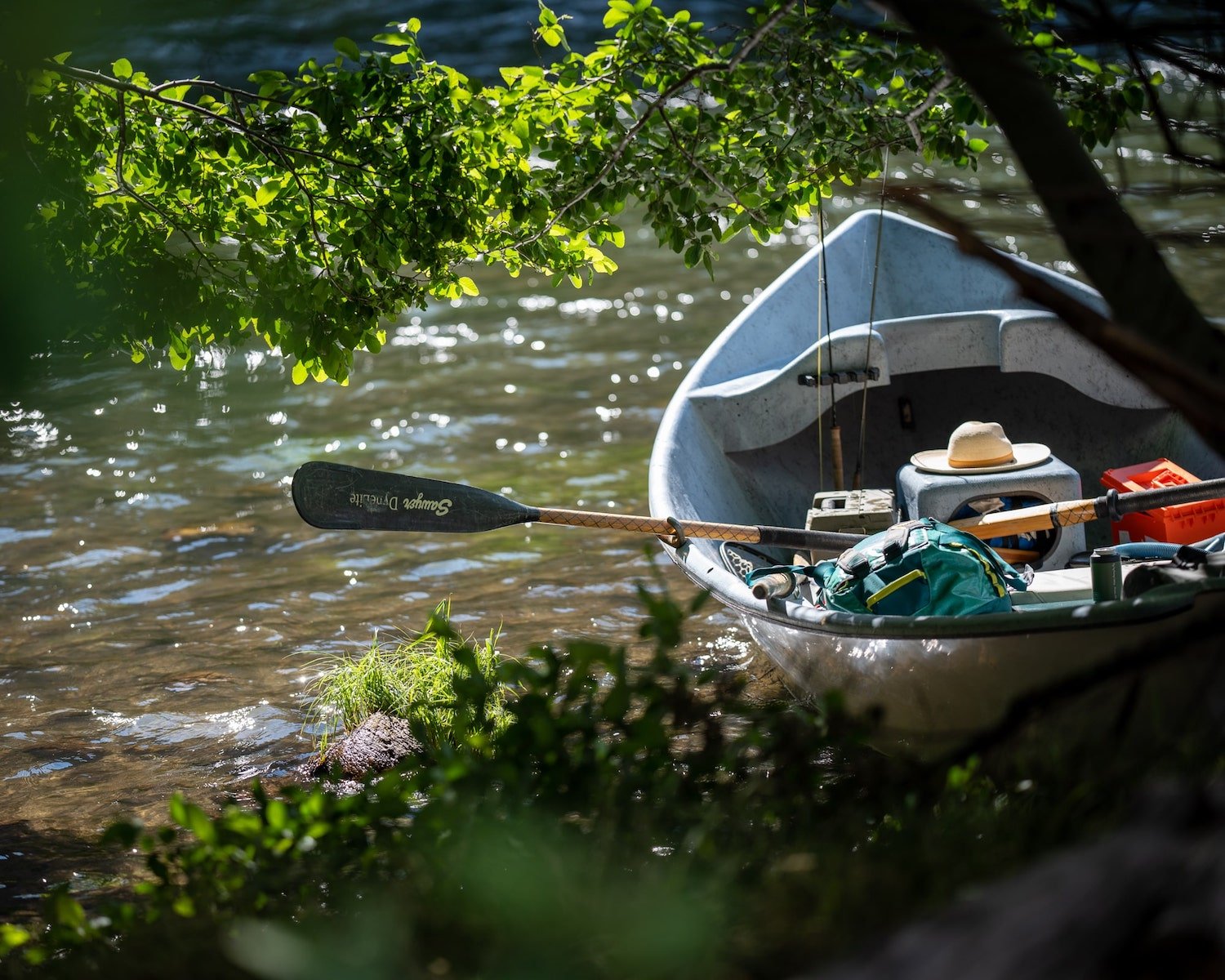Meet the Director of The Last 100 Miles
The Last 100 Miles Director Michael Peterson, in his element on the Deschutes River. The film premieres July 9th at Cinema 21 in Portland.
First Deschutes Impressions
Michael Peterson has many interests. He’s a pilot. Windsurfer. Foil boarder. Trout and steelhead angler. Musician. Whatever the adventure, from the time he was a surly teen, he’s always had a camera with him. In late summer of 2006, he was introduced to the lower Deschutes River. “Jack Granger took me on a float trip trip from Mack’s Canyon to where the Deschutes meets the Columbia,” says Peterson. “On the morning of September 12, at Dove Flats, I caught my first Deschutes River steelhead. Jack had gone up river and I was all by myself in front of camp. I let out a hoot in the early morning air that no one heard but me and the chrome bright fish. One of my vivid memories of the trip was trying to wash dishes while wearing a headlamp, the bugs were so thick I couldn't breathe. I had to turn the headlights off and wash the dishes in the dim evening light.”
That first trip made a lasting impression. In subsequent years, like so many lower Deschutes River anglers, Peterson watched with alarm as the river that furnished such a vivid, glowing memory on initial encounter became something less. Alarm turned to consternation. The notion that something had to be done took hold. In 2022, he floated the lower Deschutes on yet another fall trip, camera in tow, with the idea that a documentary film telling the river’s tale might be of some help.
The result almost two years later is The Last 100: The Fight to Save the Lower Deschutes River. It premieres next Tuesday, July 9th, at Cinema 21 in Portland.
L.A. Story
Between a Richland childhood and that first Deschutes float, Peterson’s fascination with film led him away from eastern Washington and to a desk at a few different post-production studios in L.A., where he honed skills as a special effects editor. He worked on some major motion pictures: Independence Day, Star Trek: First Contact, and Armageddon, as well as dozens of commercials. “I enjoyed my time in L.A., but after a while, I wanted to do things that were more important than helping to sell sugared cereal to kids or cars to people that really didn't need them,” recalls Peterson. “I decided to move to the most beautiful place that I had ever been and ended up in the Columbia River Gorge. I've always loved being next to large bodies of water and fishing the rivers of the northwest, so the little town of White Salmon was a perfect fit.”
Turns out it was also a good place to open a studio to begin making his own movies. His 2019 directorial debut, Dammed to Extinction, about the plight of the Salish Sea’s salmon-starved killer whales, garnered several awards. It was also a shot in the arm for activists working to put fish in the mouths of these orcas, an outcome Peterson hopes will be repeated with The Last 100 Miles. “There's potential to reach a lot of people with a feature film that can’t be reached in any other way,” says Peterson. “There’s nothing more motivating than watching a documentary in a theater with a group of like-minded people. It’s a very powerful tool for change.”
A Director’s Hope for the Lower Deschutes
Making a feature-length documentary is all-consuming. Peterson hasn’t had much spare time to get back to the Deschutes. Yet given the subject matter of The Last 100 Miles, it’s fair to say the river has been on his mind. “I want the Deschutes River to return to the healthy ecosystem that it was when I first saw it in 2006,” says Peterson. “All we need is the cold, clean water to be restored.”
More From The Blog
Subscribe the the DRA Newsletter
The Deschutes River Alliance is your focused voice to protect the lower Deschutes River, its cold water flows and the fish and wildlife that are sustained by them. We send regular emails with important data and news about the lower Deschutes River. We will not sell or loan your contact information to others.
How to Support the DRA
Everyone wants clean, healthy water in the Deschutes River. Oregonians cherish our clean and healthy waterways to provide drinking water, wildlife habitat and recreational activities. The lower Deschutes River is a federally designated Wild & Scenic River, and a national treasure. It must be protected for the environmental and economic health of Central Oregon. We believe by working together we can return the lower Deschutes River to full health.






















